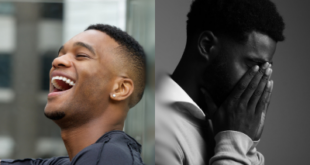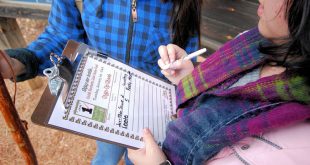“Mom, will you let me get a Facebook account when I am older?” My twelve-year-old waited patiently for my response as I did my best not to cringe at the question. I knew the day was coming when I would have to give an answer to my daughter’s inquiry, and I wanted my response to reflect a mom watching out for my daughter’s well-being.
“Possibly when you are older. We can talk about it another time when you’re a little older” Satisfied that my answer was not a flat out turn down, she walked away. Phew! Another pre-teen question set to simmer on the back burner of my mind.
As a high school teacher, I am blessed with the opportunity to see first hand what daily life is like at for an adolescent, and just knowing how high on the teenage priority list social media is for teenagers can be pretty scary. Having a social media account opens up a whole new window of responsibility, trust, and integrity. Therefore, as a parent, it is my priority number one to make sure I know the ins and outs of allowing my teen to enter in to this virtual world.
One of my favorite reliable places to go to when obtaining advice over issues such as social media, is Focus On The Family. The information presented is reliable and from a Christian based perspective which is the only lens I care to look through. As a new parent venturing in to teenage years, my own questions about parenting and social media begin to form. Referencing Vicky Courtney’s article titled Social Networking Site Safety, helped me to better understand how to approach the subject the next time my daughter brings it up.
1. What age is appropriate to even consider opening a social media account?
The minimum allowed age for Facebook is a Freshman in High School, and for My Space, a child must be at least 14 years old.
2. What are some basic rules that my teen needs to have while on his/her account?
As a parent, make it clear to your child that you will have access to their account which includes passwords. Let them know that you will be accessing the account from time to time, and emphasize that this is not an issue of trust, but a matter of safety. Most importantly, follow up with your words so that your child understands that what you say, you do.
When setting up the account,change the privacy settings so that the page is private to only those you invite to your page. This adds an extra security measure by sending a message to predators that “you do not wish to be contacted by online strangers.”
Ensure your child that they will still be able to have their friends view their page, but only those you know. When your page “is open to the public, it is the equivalent of inviting people into your home and allowing them to rifle through your photo albums, read your journals, notes or diaries. It becomes an open book, available to any of the recently estimated nine million or so individuals on the World Wide Web.” (Courtney)
3. What should my child not post or make public on their account for others to view?
Never share information that would allow strangers to identify you. (i.e. address, phone number, e-mail, etc)
Avoid having a profile that reveals too much personal information.
Before making visible, read over your teen’s profile ” objectively through the eyes of someone who may have malicious intent. You can never assume that only “good people” are viewing your profile, even if it is set to private.”
4. What advice can I give my child while using social media?
Remind your child that ” information you delete never really goes away. The pages are archived and many are accessible free of charge to the public. Every time you post something online, it is like leaving a trail of breadcrumbs for anyone who might want to trace your journey back to its starting point — even after you are long gone!” (Courtney)
Inform them that they are leaving a visual footprint that may not impact them now, but it can have a serious impact on their future. Schools “Keep in mind that many schools, teachers, colleges, employers and other organizations are searching MySpace and Facebook for information about potential students or employees” (Courtney)
Most importantly, “Remember that all space is really “His space.” Would your page make God smile? Would others come away knowing you are a Christian?” (Courtney)
To read the entire article, click here: Social Networking Site Safety
 The Bottom Line, Ministries Christian News, Articles, & Poetry
The Bottom Line, Ministries Christian News, Articles, & Poetry 




